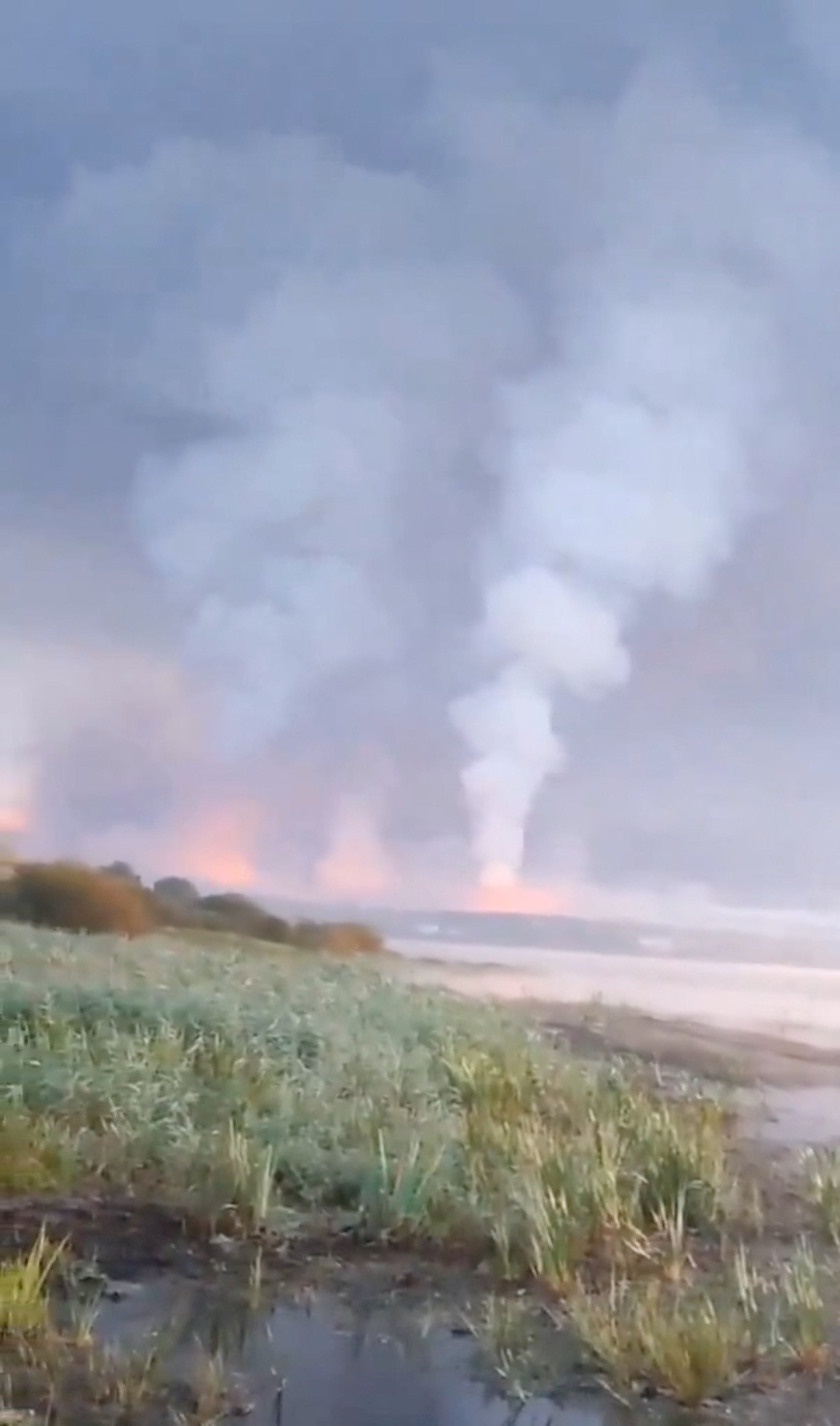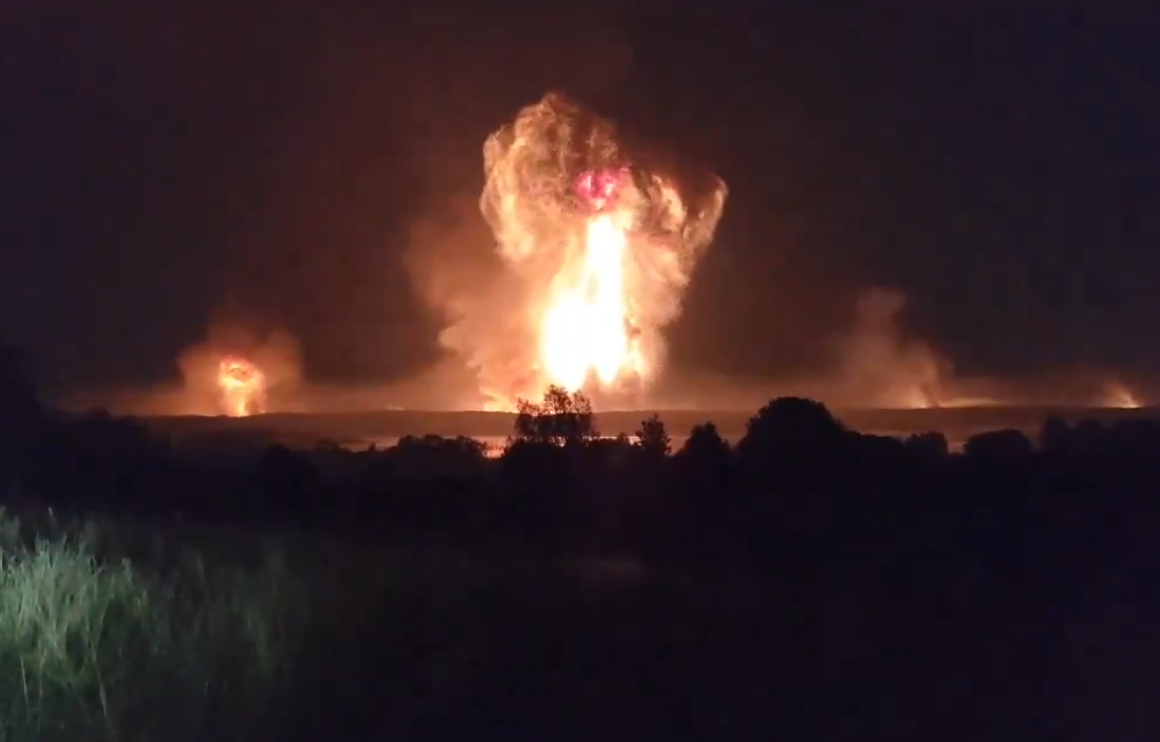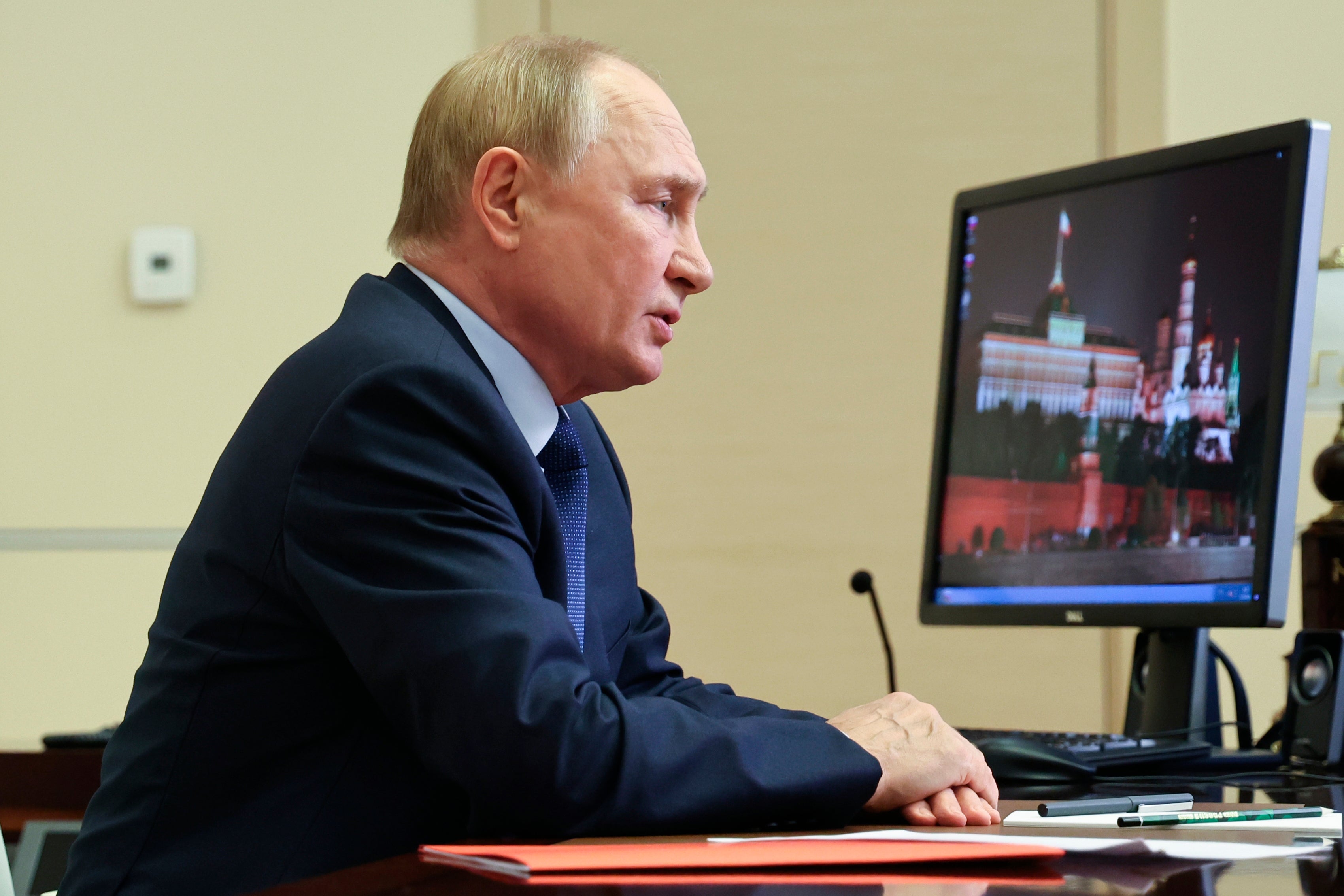Ukraine ‘drone attack hits major Russian arms depot’ sparking huge fire and evacuations in Tver region
‘Powerful’ explosion picked up by earthquake monitoring systems causes fires to burn across four miles in Russian region close to Belarus border, source says
Your support helps us to tell the story
From reproductive rights to climate change to Big Tech, The Independent is on the ground when the story is developing. Whether it's investigating the financials of Elon Musk's pro-Trump PAC or producing our latest documentary, 'The A Word', which shines a light on the American women fighting for reproductive rights, we know how important it is to parse out the facts from the messaging.
At such a critical moment in US history, we need reporters on the ground. Your donation allows us to keep sending journalists to speak to both sides of the story.
The Independent is trusted by Americans across the entire political spectrum. And unlike many other quality news outlets, we choose not to lock Americans out of our reporting and analysis with paywalls. We believe quality journalism should be available to everyone, paid for by those who can afford it.
Your support makes all the difference.A Ukrainian drone attack which sparked huge fires, evacuations and power cuts in Russia’s Tver region destroyed an arms depot storing missiles, guided bombs and artillery ammo, a Ukrainian security source has claimed.
The attack caused an “extremely powerful detonation” at a Russian defence ministry warehouse in the 1,000-year-old town of Toropets, containing Iskander and Tochka-U tactical missile systems and guided aerial bombs, a source in Ukraine’s SBU security service said.
The huge blast was registered by earthquake monitoring stations, while Nasa satellites picked up several sources of fires emanating from the site, which Russian state media suggested in 2018 was home to a major arsenal for conventional weaponry.

Dmitry Bulgakov, then a deputy defence minister, told RIA in 2018 that the facility’s concrete structure could defend the weapons from enemy missiles and even against a small nuclear attack.
But the facility caught fire in the strike jointly carried out by Ukraine’s security, intelligence and special forces, and was burning across an area four miles wide, the Ukrainian source claimed. One expert told Reuters the resulting blast appeared consistent with 200-240 tonnes of high explosives detonating.
RIA earlier quoted regional authorities as saying air defence systems were working to repel a “massive drone attack” on Toropets, which has a population of around 11,000. The town lies some 240 miles northwest of Moscow, and 65 miles from the border with Belarus.
The attack led to some residents being evacuated from Toropets, local authorities said.
It comes as president Volodymyr Zelensky urges Ukraine’s allies to allow Kyiv to use Western-supplied long-range missiles to strike military targets deep inside Russian territory in spite of warnings by Vladimir Putin that doing so would mean Nato was at war with Russia.
After such authorisations failed to materialise during Keir Starmer’s Washington meeting with US president Joe Biden last weekend, Nato chief Jens Stoltenberg gave an interview to The Times in which he was dismissive of Mr Putin’s threats of war.

“There have been many red lines declared by him before, and he has not escalated, meaning also involving Nato allies directly in the conflict,” said Mr Stoltenberg, whose tenure as Nato chief ends in October.
“He has not done so, because he realises that Nato is the strongest military alliance in the world. They also realise that nuclear weapons, nuclear war, cannot be won and should not be fought. And we have made that very clear to him several times.”
Labelling Mr Stoltenberg’s comments “extremely provocative and dangerous”, Kremlin spokesperson Dmitry Peskov told reporters on Wednesday: “This ostentatious desire not to take seriously the Russian president’s statements is a move that is completely short-sighted and unprofessional.”
And in a continuation of the diplomatic tit-for-tat following Sir Keir’s Washington trip, Britain’s Foreign Office said it had summoned Russia’s ambassador after Moscow revoked the accreditation of six UK diplomats it accused of spying.
Calling the accusations “baseless” and accusing Moscow of an “unprecedented and unfounded public campaign of aggression”, a Foreign Office spokesperson said: “This pattern of behaviour is completely unacceptable, deeply unprofessional, and beneath the standards of conduct between states.”
“This is the latest development in a deliberate campaign by Russia to undermine and threaten UK security and democracy and deter our support for Ukraine, through disinformation, acts of sabotage in Europe and direct harassment and restrictions against our diplomatic missions in Russia,” they added.
Elsewhere, Romania’s defence minister Angel Tilvar warned that Nato must respond to incidents in which Russian missiles or drones fired at Ukraine enter the alliance’s airspace, just days after his country reported the latest such violation during a nighttime attack on Ukraine.

With its growing attacks on Russian soil and daring incursion into Kursk, Ukrainian officials have suggested that Kyiv is seeking to compel Mr Putin to back down and weaken his hand in any future negotiations to end the war.
And Mr Zelensky said last month that his recently-announced plan for victory includes not only battlefield goals but also diplomatic and economic wins.
The plan has been kept under wraps but the US ambassador to the United Nations, Linda Thomas-Greenfield, told reporters on Tuesday that Washington officials have seen it.
“We think it lays out a strategy and a plan that can work,” she said, adding that the United States will raise the plan with other world leaders next week at the UN General Assembly in New York.
Additional reporting by agencies
Subscribe to Independent Premium to bookmark this article
Want to bookmark your favourite articles and stories to read or reference later? Start your Independent Premium subscription today.

Join our commenting forum
Join thought-provoking conversations, follow other Independent readers and see their replies
Comments